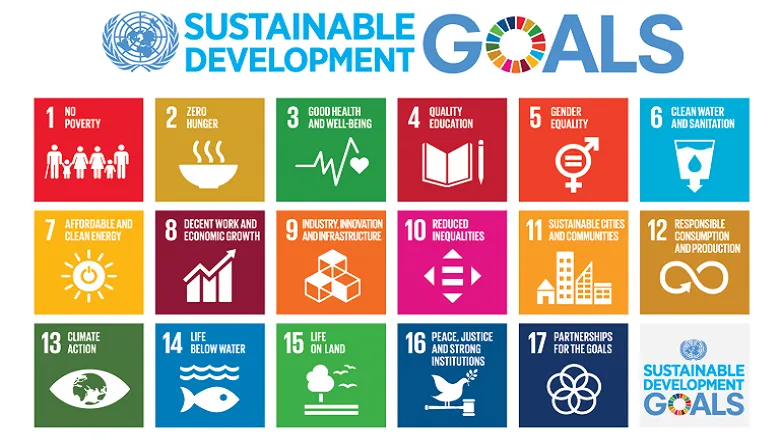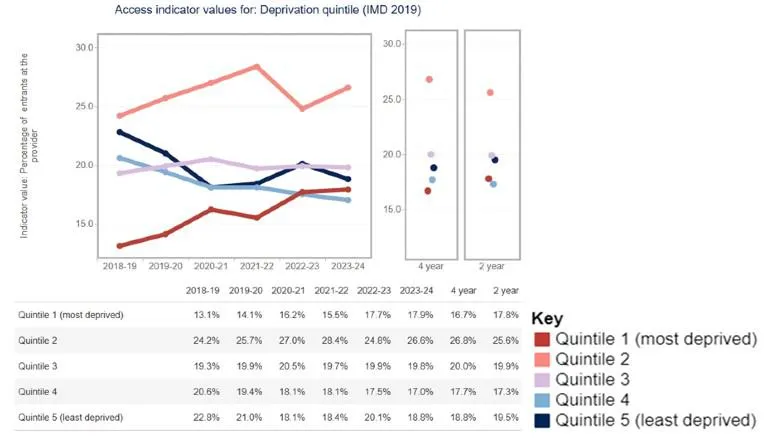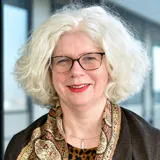We’ve learned that it isn’t only about getting students through the door, it’s about creating an environment where students feel they belong, where they can see themselves reflected and supported. And to be able to access the right services at the right level at the right time. Mental health and wellbeing are central to that.
Professor Kim Piper (Academic Director of Student Success)
15 October 2024
Michael Bennett, Associate Director of Social Mobility & Widening Participation
At King’s College London, our mission is to make the world a better place through education, research and our commitment to service. This is rooted in a deep belief that talent and ambition exist everywhere but opportunities are unfairly rationed. Through our Access & Participation Plan (APP) and the wider work of our Social Mobility & Widening Participation team, we are tackling those structural barriers to education that prevent individuals and communities from realising their potential. The impact of this work extends far beyond the university gates. The APP is a framework for equity in higher education and a regulatory document. It is not commonly thought of as a practical expression of King’s commitment to the United Nations Sustainable Development Goals (SDGs), connecting our social mission with a global agenda for a fairer, more sustainable world. However, it is an important framework through which to achieve this.

A shared global ambition
At its core, the APP is our roadmap for widening participation and improving equality of opportunity in higher education. The plan sets out specific targets, interventions and evaluation frameworks across the full student lifecycle, from Access and Continuation, to Completion, Attainment and Progression. Accessing university, and in particular universities like King’s, engaging in a rich and well-rounded student life and progressing to the best possible outcomes, is a surefire way of improving intergenerational mobility and standards of living, with graduates seeing enhanced economic, social and physical and mental health benefits over the course of their lives.
Our current APP covers 2020/1-2024/25. It sets out our mission, aims and objectives, with what we will do to improve equality of opportunity for underrepresented groups at different stages of their educational journey. In August 2024, the Office for Students approved our Access & Participation Plan covering the period 2025/26-2028/29.
Over the lifetime of the new plan (2025/26-2028/29), King’s will invest more than £17 million in access and student success initiatives, supported by a rigorous evaluation and research framework to measure impact. Yet its reach is broader still. By embedding principles of equity, wellbeing and partnership, the work in the APP directly contributes to several of the UN’s SDGs, particularly SDG3: Good Health & Well-being, SDG4: Quality Education, SDG5: Gender Equality, SDG8: Decent Work & Economic Growth and SDG10: Reduced Inequalities.
Leaving no one behind
The APP takes an intersectional approach to widening participation. For example, rather than treating ‘low income’ in isolation, it recognises that disadvantage is often shaped by the interaction of multiple factors: ethnicity, region, disability, care experience, family estrangement or migration status.
This reflects a core SDG principle: to leave no one behind.
Among the plan’s headline commitments are:
- Raising the proportion of UK undergraduates who were eligible for Free School Meals to 25% by 2028/29.
- Closing a six-percentage-point continuation gap for students with long-term mental health conditions.
- Reducing the Black:White degree awarding gap from 18.2 percentage points in 2021/22 to 11.7 by 2028/29.
- Expanding pre-16 outreach and attainment programmes for students from disadvantaged backgrounds, including King’s Scholars, Scholars+ and K+.
|
Aim |
Baseline year |
Baseline data |
2025/26 |
2026/27 |
2027/28 |
2028/29 |
|
Increase the proportion of students eligible for Free School Meals to 25% of our UK undergraduate cohort |
2021/22 |
23.1% |
23.1% |
23.6% |
24.1% |
25.1% |
These targets contribute directly to SDG 1: No Poverty, SDG4: Quality Education and SDG10: Reduced Inequalities, ensuring that more students access university, and thrive and progress beyond it.
Supporting women to succeed
We are dedicated to promoting gender equality in higher education (SDG 5), ensuring that women have equal opportunities to access, participate in and complete their studies. Alongside our APP, King’s has a range of initiatives to support women:
- Athena SWAN Charter: Active participation and award recognition.
- STEM outreach: Working to support women in science, technology, engineering and mathematics to address the current underrepresentation of women working and studying in these areas.
- Leadership Development: King's Global Institute for Women's Leadership brings together rigorous research, practice and advocacy to break down the barriers to women becoming leaders, while challenging ideas of what leadership looks like.
- Support for student parents: Options to support students with caring responsibilities.
The proportion of applications and enrols for female students at King's has been consistent from 2021/22 to 2023/24, with women much more likely to access King’s than men. Women consistently represent the majority of enrolled students, with 63% in 2021/22 and 64% in 2022/23 and 2023/24, compared to 35–36% for men. Furthermore, intersectional analysis shows that women from the most disadvantaged areas of the country (Index of Multiple Deprivation Quintiles 1+2) are a higher proportion of the undergraduate population than male students from the least disadvantaged areas. For example, in 2023/24 women from the most disadvantaged areas (IMD Quintiles 1 & 2) account for 30.3% of entrants, which is significantly higher than men from the least disadvantaged areas (20.2%).
We ensure that women are supported throughout their academic journey at King's through mentoring schemes, support services, flexible learning and support for student parents. As a result of this, in terms of outcomes female students consistently achieve strong results, with over 85% attaining a first-class or upper second-class degree, and there is no significant attainment gap compared to male students.

Supporting wellbeing and belonging
For many students, success in higher education depends as much on wellbeing and belonging as on academic ability. King’s is embedding these insights into its access and success strategy, aligning closely with SDG3: Good Health & Well-being.
One of the plan’s objectives is to close the continuation gap for students with long-term mental health conditions by 2028/29. This is being supported through a series of tailored initiatives: peer mentoring, belonging interventions, proactive wellbeing surveys and inclusive pedagogy schemes across faculties.
Continuation rates for students with long-term mental-health conditions are on track to close a six percentage-point gap by 2028/29.

Continuation gap at King's for students with mental-health conditions.
Opening doors for forcibly displaced students
Globally, fewer than six percent of refugees have access to higher education. King’s is working to change that through our Sanctuary Programme. Since 2015, we have been supporting individuals affected by conflict and displacement to rebuild their lives. The programme provides full tuition waivers, living cost support, and dedicated wellbeing resources to help displaced students and academics navigate not just university life, but the healing process too. Over the last nine years, the Sanctuary Programme has provided full tuition fee and living cost support to over 70 scholars and provided emergency financial support to 19 forcibly displaced students experiencing severe hardship, enabling them to continue their education and preventing homelessness among those with precarious immigration status. In July 2024, King's committed to provide £500,000 per year towards Sanctuary scholarships and fellows for at least the next three years.
Through the University Sponsorship Model, co-developed with Newcastle, Leicester and the Open University, King’s is also helping to create safe and legal higher-education pathways for forcibly displaced students and academics. The model supports the UNHCR’s 15% enrolment target by 2030, advancing SDG4 (Quality Education), SDG10 (Reduced Inequalities) and SDG17 (Partnerships for the Goals). It represents a tangible expression of King’s ethos of service, ensuring that higher education remains a space of refuge and opportunity.
Financial inclusion and the cost of learning
Financial barriers remain one of the most persistent obstacles to higher education. The APP directly addresses this through expanded financial support, including the King’s Living Bursary, hardship funds, and rent subsidies through the King’s Affordable Accommodation Scheme (KAAS).
The King’s Living Bursary, along with ring-fenced hardship funds, reduce the financial burden of study. Students with a household income of £42,875 or under are eligible for some level of support, and care-experienced and estranged students are eligible for both the King’s Living Bursary and an additional award totalling £3,000 per year. KAAS directly mitigates the cost of living in London for students from low-income households by providing students who face financial barriers to studying with us a subsidised rate, making our student residences the most affordable in London.
We do a disservice to our students, especially those from less financially secure backgrounds, if we support them to get to King’s only for them to not be able to have the best experience possible. Financial support helps our students live and study well while they are with us.

- The proportion of students from the most income-deprived postcodes (IMD Quintiles 1+2) at King’s has increased by over six percentage points since 2018/19.
-
The access ratio between students from the areas of the country most and least represented in higher education coming to King’s has improved from 12.5 to 6.7 (2018/19-2023/24).
-
Annual participation data disaggregated by POLAR4 quintile and Index of Multiple Deprivation (IMD) show consistent growth in engagement in our flagship Widening Participation programmes.
- Using the Acorn measure, the non-continuation rate for students from the most disadvantaged households has improved from 10.4% (2017/18) to 6.4% (2023/24). It is now within 0.8% of the institutional average.
By committing £11.6 million to access and financial support interventions, and £5.4 million to student success over the plan’s duration, King’s is supporting students not just academically but holistically. This work underpins SDG1 (No Poverty) and SDG10 (Reduced Inequalities), helping ensure that financial circumstances do not determine educational outcomes.
Partnerships for change
Delivering systemic change requires collaboration. King’s approach to social mobility is rooted in partnership, with schools, trusts, community organisations and local government, reflecting SDG17: Partnerships for the Goals.
Initiatives such as Parent Power, developed with Citizens UK, empower parents to advocate for educational opportunities in their own communities. In sixteen underserved areas across the UK, Parent Power groups are mobilising families to campaign for better access to higher education, mental health services and affordable housing, demonstrating what collective agency can achieve.
Similarly, partnerships with organisations like The Brilliant Club and United Learning are expanding access to our programmes, and supporting teachers directly by partnering school leaders with King’s academic researchers.
Partnerships like these don’t just extend our reach, they ensure that the communities we work with shape the solutions we deliver.
Michael Bennett, Associate Director of Social Mobility & Widening Participation
Building pathways to opportunity
Equity in education must translate into equity in outcomes. The APP’s focus on progression, ensuring that all students have equal access to meaningful employment or further study after graduation, speaks directly to SDG8: Decent Work and Economic Growth.
King’s Careers & Employability is fully committed to supporting, empowering and levelling the playing field for our students, research staff and graduates from all backgrounds and communities. They work to address both sector-wide and institutional factors that contribute to unequal progression among students from disadvantaged and/or underrepresented backgrounds through Careers+.
King’s also provides extended careers support for up to five years post-graduation for students from underrepresented groups, helping them navigate the transition from university to the workplace. By strengthening employability and career confidence, these programmes foster inclusive economic participation and help break cycles of disadvantage.
A framework for evidence and accountability
What distinguishes King’s APP is our emphasis on data-driven evaluation and research culture through our What Works team in the Social Mobility & Widening Participation department. Using Theories of Change and quasi-experimental methods, King’s continuously assesses what works, and for whom.
This commitment to evidence underpins SDG17.18, which calls for enhanced data, monitoring and accountability to support sustainable development. It also reinforces King’s role as a sector leader, contributing to the national evidence base through partnerships with the Office for Students, Transforming Access and Student Outcomes (TASO), and peer institutions.
The power of higher education to change lives
The work of the Access & Participation Plan is both local and global. It improves outcomes for individual students, raising aspirations, supporting wellbeing, ensuring success, while contributing to a wider transformation in how education drives equity and inclusion.
From early years outreach to refugee education, from bursaries to belonging, King’s is demonstrating how universities can make meaningful contributions to the UN SDGs through sustained investment, evidence-based practice and deep community partnership.
As the APP continues to evolve, one principle remains constant: education changes everything when everyone has the chance to take part.
Further information
For more details, visit our Access and Participation Plan webpage

